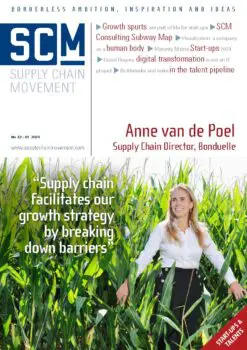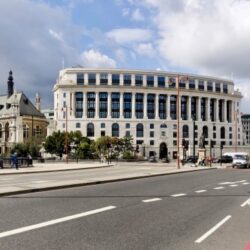Schneider Electric: ‘‘Sustainability is not a zero-sum game’’

Schneider Electric topped the Global 100, a ranking of the hundred most sustainable companies, in 2021. In that year, the French high-tech company launched a new sustainability strategy with ambitious targets. Crucial to this is collaboration with the top 1,000 suppliers, said Marcus LeMaster, Global Director Logistics Sustainability at Schneider Electric, during an event by software provider Manhattan. “Only through collaboration can we discover how to reduce emissions.”
The French company dropped to seventh place two years later in the ranking by research firm Corporate Knights, but Schneider Electric is still considered an example of a company that has made sustainability a strategy. “Our goal is to enable everyone to get the most out of our energy and resources. We work on that every day. Everyone within Schneider Electric thinks about sustainability in their daily work,” LeMaster said.
He shared his experiences at Exchange 2023, the annual user conference of supply chain software provider Manhattan in Cannes in October. He said his company launched a new environmental, social & governance (ESG) strategy in 2021, with which all employees are familiar. “We have set targets around climate, resources, trust, equality and generations. And just as importantly, we have added local targets to that. We have operations in 48 different countries and have introduced sustainability plans for the local communities in which we operate.”
The ESG strategy states that Schneider Electric aims to achieve a net-zero operation by 2030. Under the Science Based Targets Initiative guidelines, that means reducing its own CO2 emissions by at least 90% and offsetting no more than 10%. “So that covers Scope 1 and Scope 2 emissions,” said LeMaster. Scope 1 refers to direct carbon emissions from own sources within the organization, and Scope 2 to indirect CO2 emissions from generation of purchased and consumed electricity or heat. “Of course, we are also working on Scope 3 emissions (indirect CO2 emissions caused by another organization’s business activities, Ed.). Together with suppliers, we are exploring the use of green materials and packaging.” … … …
Want to read more?











